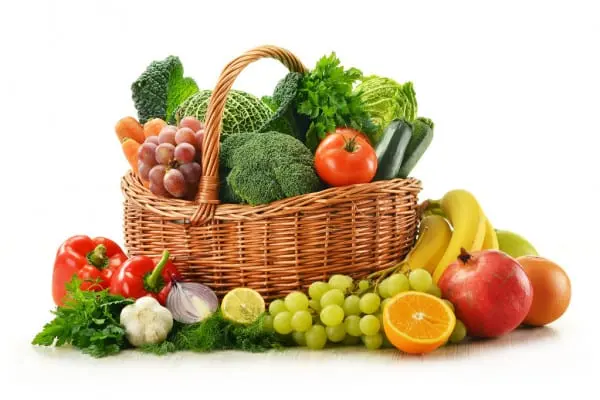The list of vegetables:
Vegetable Articles
About Vegetables

It is impossible to imagine proper nutrition of a modern person without eating vegetables, which provide us with vitamins, trace elements and antioxidants. We analyze with a specialist which vegetables should be on the table.
Nutritionists keep repeating that proper nutrition consists in eating not only enough of the correct carbohydrates and proteins, but also a large amount of greens, fresh vegetables and fruits. What are the benefits of vegetables and what harm they can bring us, we asked a dietitian.
The benefits of vegetables
The benefits of vegetables for our body are enormous, but the most important thing for which we love and appreciate them is as a source of vitamins.
Vegetables contain the full spectrum of water-soluble vitamins and the precursor of fat-soluble vitamin A, beta-carotene. Most of the beta-carotene is found in bright orange vegetables such as carrots and pumpkin. Also important for our health is vitamin C, which is abundant in cabbage (especially in sauerkraut), bell peppers of all colors. Cauliflowers and legumes contain high amounts of vitamin B9 (folate).
The human body perfectly assimilates vitamins from natural sources, and if there are no genetic disorders in the assimilation of vitamins and their transition to an active form, then a sufficient amount of a variety of vegetables in the diet can fully cover our daily needs for water-soluble vitamins.
In addition, vegetables, especially dark colored vegetables, contain a large amount of antioxidants. Scientists have found that the health of a modern person is unthinkable without an adequate supply of antioxidants, which help fight negative environmental factors such as toxins. The richest sources of antioxidants are green onions, garlic, cabbage, parsley, sorrel, spinach.
Also, do not forget that vegetables contain minerals: potassium, sodium, calcium, phosphorus, which are necessary for the prevention of osteoporosis, the normal functioning of our hematopoietic system. Most importantly, eating vegetables gives us the ability to get fiber – indigestible dietary fiber, which is the best natural probiotic.
Thanks to these elements, a favorable microflora is established in the intestine. A healthy intestinal myrobiota is a guarantee of longevity, and this is now confirmed by multiple genetic studies. The more fiber a person consumes per day, the better the composition of his microbiota, the longer and healthier his life will be.
For a normal adult, the minimum consumption of vegetables and herbs per day is at least 600 g, that is, nutritionists advise to eat three servings of lettuce 200 g per day. If the amount of fiber entering the body decreases, then the corresponding symptoms appear – constipation, indigestion, decrease immunity, the development of pathogenic microflora in large quantities. In addition, a lack of fiber causes a disturbance in the diet, since it is fiber that gives us a long-lasting feeling of satiety, filling the stomach.
Harm of vegetables
The harm of vegetables lies in the danger of ingestion of fertilizers that were used for their cultivation – pesticides, nitrates. We need to pay attention to this, especially if we eat vegetables in the proper amount, and try to choose organic vegetables, that is, grown without the use of fertilizers.
With an exacerbation of any diseases of the gastrointestinal tract, fresh vegetables should not be consumed. In this case, at least minimal heat treatment is necessary, nutritionists say. Vegetables retain their benefits when stewed or boiled, they can be steamed or baked.
How to choose the right vegetables
It is best to choose homemade, clean vegetables. If possible, it is better to give preference to organic, the ideal option is products from your garden, grown by yourself.
Vegetables must be ripe without any signs of visible damage. The most important thing is that there should be absolutely no mold on the fruit. If a mold process has already begun in some area of the vegetable, then all this product cannot be eaten, it must be thrown away. The fact is that the entire vegetable is already infected with a fungus, so it can be dangerous to eat such a fruit.










ALL